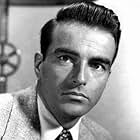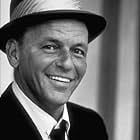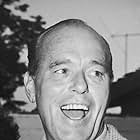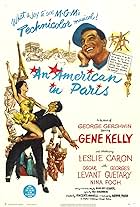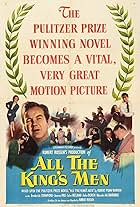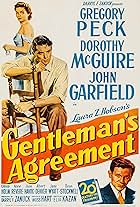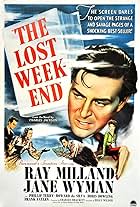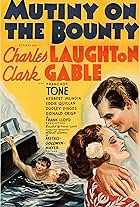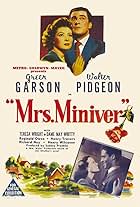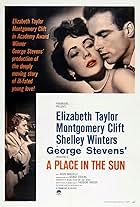En Hawái en 1941, varios dramas sociales acontecen en el pelotón del recién llegado Robert Prewitt que parecerán minucias cuando Pearl Harbor sea inesperadamente atacado.En Hawái en 1941, varios dramas sociales acontecen en el pelotón del recién llegado Robert Prewitt que parecerán minucias cuando Pearl Harbor sea inesperadamente atacado.En Hawái en 1941, varios dramas sociales acontecen en el pelotón del recién llegado Robert Prewitt que parecerán minucias cuando Pearl Harbor sea inesperadamente atacado.
- Ganó 8 premios Óscar
- 25 premios ganados y 9 nominaciones en total
Claude Akins
- Sgt. 'Baldy' Dhom
- (sin créditos)
Vicki Bakken
- Suzanne
- (sin créditos)
Margaret Barstow
- Roxanne
- (sin créditos)
- Dirección
- Guionistas
- Todo el elenco y el equipo
- Producción, taquilla y más en IMDbPro
Best Picture Winners by Year
Best Picture Winners by Year
See the complete list of Best Picture winners. For fun, use the "sort order" function to rank by IMDb rating and other criteria.
Argumento
¿Sabías que…?
- TriviaMontgomery Clift threw himself into the character of Prewitt, learning to play the bugle (even though he knew he'd be dubbed) and taking boxing lessons. Fred Zinnemann said, "Clift forced the other actors to be much better than they really were. That's the only way I can put it. He got performances from the other actors, he got reactions from the other actors that were totally genuine."
- ErroresThe impromptu bugle solo in the club includes notes that only a trumpet could hit.
- Citas
Robert E. Lee "Prew' Prewitt: Nobody ever lies about being lonely.
- Créditos curiososOpening credits prologue: SCHOFIELD BARRACKS HAWAII 1941
- ConexionesEdited from December 7th (1943)
- Bandas sonorasRe-enlistment Blues
(1953)
by James Jones, Fred Karger, Robert Wells
Sung by men in the barracks twice
Played often in the score
Opinión destacada
Classic 50's Hollywood feature documenting the lives and times of the US Army personnel in Hawaii leading up to the Japanese air attack on the Pearl Harbour naval base which precipitated the US entry into the second world war. Shot in black and white by Fred Zinnemann to emphasise the war-time setting, the drama is peopled with convincingly realistic characters with a credible, episodic narrative edging ever closer to the pivotal date of December 7th.
Multiple plot lines are skilfully interwoven until their climactic convergence at the end aided by top acting from a superb cast. The dramatic thread to the film is Montgomery Clift's Prewett character and his relationships with the characters played by Burt Lancaster, the firm but fair sergeant himself drawn into a sexually charged relationship with his superior officer captain's disaffected wife, played against type by Deborah Kerr, Donna Reed as the "hostess" he falls in love with and especially Frank Sinatra's rascally but likeable and always supportive Maggio.
Sinatra famously begged for the chance to show his acting skill in a straight role to reignite his career and duly given the chance, he grabs it with both hands. Lancaster and Kerr fire up the screen in their doomed relationship, especially in the famous scene by the crashing waves, Reed plays her part with admirable restraint but Clift's acting exceeds them all, whether in his reluctant fight scenes, blowing a bugle like Satchmo or playing a drunk after he's exacted revenge on Maggio's tormentor, played memorably by the recently deceased Ernst Borgnine.
The action climax as the Japanese attack is thrillingly portrayed especially the high camera shots, although I would question the too obvious and thus jarring insertion of real footage of the actual attack.
Controversial in its day for its unblinkingly honest depiction of the US army, it can be seen now as one of the best films of the 50's, a master class in dramatic narrative and character acting.
Multiple plot lines are skilfully interwoven until their climactic convergence at the end aided by top acting from a superb cast. The dramatic thread to the film is Montgomery Clift's Prewett character and his relationships with the characters played by Burt Lancaster, the firm but fair sergeant himself drawn into a sexually charged relationship with his superior officer captain's disaffected wife, played against type by Deborah Kerr, Donna Reed as the "hostess" he falls in love with and especially Frank Sinatra's rascally but likeable and always supportive Maggio.
Sinatra famously begged for the chance to show his acting skill in a straight role to reignite his career and duly given the chance, he grabs it with both hands. Lancaster and Kerr fire up the screen in their doomed relationship, especially in the famous scene by the crashing waves, Reed plays her part with admirable restraint but Clift's acting exceeds them all, whether in his reluctant fight scenes, blowing a bugle like Satchmo or playing a drunk after he's exacted revenge on Maggio's tormentor, played memorably by the recently deceased Ernst Borgnine.
The action climax as the Japanese attack is thrillingly portrayed especially the high camera shots, although I would question the too obvious and thus jarring insertion of real footage of the actual attack.
Controversial in its day for its unblinkingly honest depiction of the US army, it can be seen now as one of the best films of the 50's, a master class in dramatic narrative and character acting.
- Lejink
- 27 jul 2012
- Enlace permanente
Selecciones populares
Inicia sesión para calificar y agrega a la lista de videos para obtener recomendaciones personalizadas
- How long is From Here to Eternity?Con tecnología de Alexa
Detalles
- Fecha de lanzamiento
- País de origen
- Idioma
- También se conoce como
- From Here to Eternity
- Locaciones de filmación
- Halona Beach Cove, O'ahu, Hawái, Estados Unidos(Warden and Karen's kissing in the surf scene)
- Productora
- Ver más créditos de la compañía en IMDbPro
Taquilla
- Presupuesto
- USD 1,650,000 (estimado)
- Total en EE. UU. y Canadá
- USD 36,416
- Fin de semana de estreno en EE. UU. y Canadá
- USD 18,176
- 7 dic 2003
- Total a nivel mundial
- USD 36,416
- Tiempo de ejecución1 hora 58 minutos
- Color
- Mezcla de sonido
- Relación de aspecto
- 1.37 : 1
Contribuir a esta página
Sugiere una edición o agrega el contenido que falta

Principales brechas de datos
By what name was De aquí a la eternidad (1953) officially released in India in Hindi?
Responda










